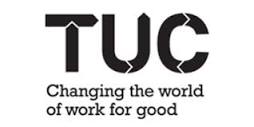The press release issued by the TUC on 2 February 2023.
- UK GDP is now £400bn less than expected from the growth rate forecast by the OBR when the Conservatives took office in 2010
- The wealth of the top decile has grown by 70% since 2010, while workers have endured the worse pay crisis for 200 years
- By cutting services and holding down wages in favour of a wealth boom for the rich, the Tories have created an economic “doom loop”, says TUC
New research published today (Thursday) by the TUC shows that the UK economy has been managed under Conservative government since 2010 to reward the wealthy, but at the cost of wages and GDP growth.
The research will be discussed today at a TUC conference on Economics for workers, not wealth.
The ‘doom loop’ of wage cuts, asset booms and low growth
The TUC research details how government spending cuts have weakened the economy, without improving the public finances.
Weaker growth has resulted in lower revenues. But rather than recognising cuts as a cause of weak growth, Conservative governments have doubled down on cuts to departmental budgets and cuts to the real pay of public sector workers.
In parallel, policies have been implemented that favour wealth accumulation over wage growth. This includes:
- Tax breaks for corporations, banks, and wealthy individuals
- Legislation to weaken workers’ wage bargaining power
- Failure to strengthen corporate responsibility to ensure a fair distribution of rewards between workers and shareholders
The union body says that this approach to the economy has created a “doom loop” of weak wage growth, weak GDP growth, and weak revenue. With the Conservative government’s current approach of public sector pay cuts, departmental budget cuts, and refusal to consider wealth taxes, this doom loop is set to keep turning.
Returning to a balance between wealth and wages that supports growth
The TUC is calling on the Conservative government to end its damaging fixation with boosting the wealth of the rich at the cost of a strong economy with decent wage growth and improvement to living standards.
The report examines the trend for weaker economic growth from 1979 onwards, compared to the post-war period of sustained growth in GDP, wages and living standards.
The analysis shows how shifting economic power from the wealthiest to workers will reinvigorate the UK economy and can set it back towards a sustained path of stronger growth.
And it backs the call made by the IMF Managing Director, Kristalina Georgieva, to ‘embrace the spirit of Keynes to build a more resilient world for all’, through international agreements to protect labour standards from capital flows.
The TUC is calling on the government to takes steps to achieve this shift, including:
- Fund decent pay rises for all public service workers that at least match the cost of living and begin to restore earnings lost over the last decade.
- Strengthen and extend collective bargaining across the economy, including introducing fair pay agreements to set minimum pay across whole sectors.
- Make sure everyone pays their fair share of taxes by equalising capital gains tax rates with income tax as a first step to fair taxes on wealth.
- Outline an investment plan in public services to fill staff vacancies, clear backlogs and meet the Prime Minister’s promise of “world-class” public services.
- Pursue international agreements to raise labour standards by permitting countries to control capital flows in ways that protect and promote decent jobs in all countries.
TUC General Secretary Paul Nowak said:
“Wage growth is the fuel in the tank that drives the economy. Businesses need customers with money to spend. That’s the only way our economy is going to grow sustainably.
“But since 2010, Conservative policies have held down wages year after year. And ministers have given more and more in tax breaks to banks, corporations, and high earners. The rich got richer, but living standards for everyone else fell.
“We need a fresh approach to the economy that restores economic power to working people. That is what will break us out of this doom loop of pay squeezes, low spending, and low growth.”
On the need for international agreements to protect workers from global capital flows undermining decent work, Paul added:
“Last century, Britain spearheaded international agreements that meant countries cooperated to protect and improve jobs. It helped create the post-war economic boom.
“But over time these agreements have been undone. And today we too often find ourselves in a race to the bottom – losing jobs overseas, and downgrading the quality of jobs in the UK.
“It’s time to return to the approach that worked so well for our grandparents. Britain should once again go to our global partners with proposals for shared rules that protect and promote decent jobs in all countries.”
